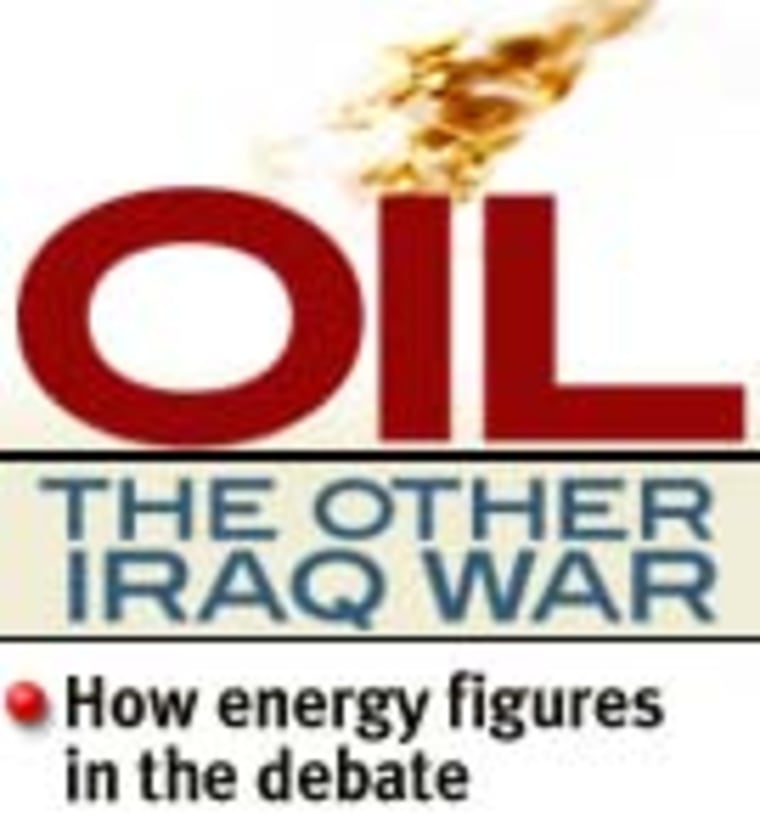When OPEC ministers sit down Thursday in Vienna to set production targets, they’re widely expected to cut their quotas to try to help keep oil prices in the mid-$20-a-barrel range. But this time around, those quotas may not mean all that much. That’s because the oil markets are being churned by a variety of forces that are both difficult to predict and largely outside of OPEC’s control.

THERE’S NO DOUBT the market has been flooded with oil in recent weeks, thanks for heavy production by Saudi Arabia to offset the loss of Iraqi oil. After world oil prices briefly approached $40 a barrel before the war, the benchmark Brent crude had fallen to $25.25 by Wednesday.
Now, OPEC wants to mop up enough of that oil to make sure prices don’t fall further. But figuring out just how much to cut back will be much tougher than usual this time around.
For one thing, the loss of Iraqi oil has prompted a frenzy of quota cheating by the remaining cartel members, the so-called OPEC 10. At the beginning of February, the group agreed to hold production to 24.5 million barrels a day. But with shutdown of Iraqi oil during the war, the remaining OPEC members have been producing some 2 million barrels a day over that quota, according to the latest estimates from the U.S. Energy Department.
“They are pumping every barrel they can possibly get out of the ground,” said Fadel Gheit, an oil analyst at Fahnestock. “They’re like sharks — if one of the sharks gets sick, the other guys cannibalize the sick one.”
Once production resumes, Iraqi exports could add as much as 2.5 million barrels a day to world markets. While Iraq this week began very limited oil production — crude from southern fields began flowing through pipelines Wednesday — the resumption of oil exports has been blocked by the political stalemate between the U.S. and U.N. over just who will control oil sales in Baghdad. Some 8 million barrels of Iraqi oil is sitting in storage - but dealers can’t buy it until a new oil ministry is up and running.

“There’s no one who can convey title on behalf of Iraq,” said Jim Placke, at Cambridge Energy Research. “People will want something more than General Franks’ assurance that this is okay.”
U.S. State Department officials said Tuesday they doubted Iraq would even send a representative to this week’s OPEC meeting.
Iraq isn’t the only wild card for OPEC. Political turmoil in Nigeria has sharply cut production; recently elections there will likely restore stability and restart exports, but it’s not clear how long that will take. In Venezuela, a five-month strike by oil workers continues to disrupt production. Restoring full production from those countries would add another 1.5 million barrels a day, according to Gheit.

OPEC also has to try to forecast what will happen to world oil demand in the coming months. Spring is typically a weak season for oil demand, falling between peak heating oil consumption in the winter and the summer spike in gasoline demand.
But this year, that pattern may be even more pronounced. A weak global economy could further cut oil demand. The SARS outbreak, and the resulting travel slowdown, has already cut demand for jet fuel, which makes up about 10 percent of crude oil consumption. The epidemic is already cutting economic growth in Asia, but it’s difficult to predict how much deeper that slowdown could be.
A weak economy could also help rebuild oil inventories, which are some 30 percent below levels last year — after a bitter cold winter produced a surge in demand for heating oil. Tight supplies have helped keep crude oil prices high — rebuilding those inventories could take pressure off prices.
No matter where the latest round of quotas is set, OPEC may decide to keep producing at close to current levels, according to Raad Alkadiri, an oil analyst at PFC Energy in Washington. He thinks reports of overproduction by OPEC have been overdone.
OPEC “played a public relations game,” he said. “It told the market there was going to be a lot of oil coming on the market and that dampened prices. And then they didn’t produce as much as they said they would. So they don’t have to cut as much now.